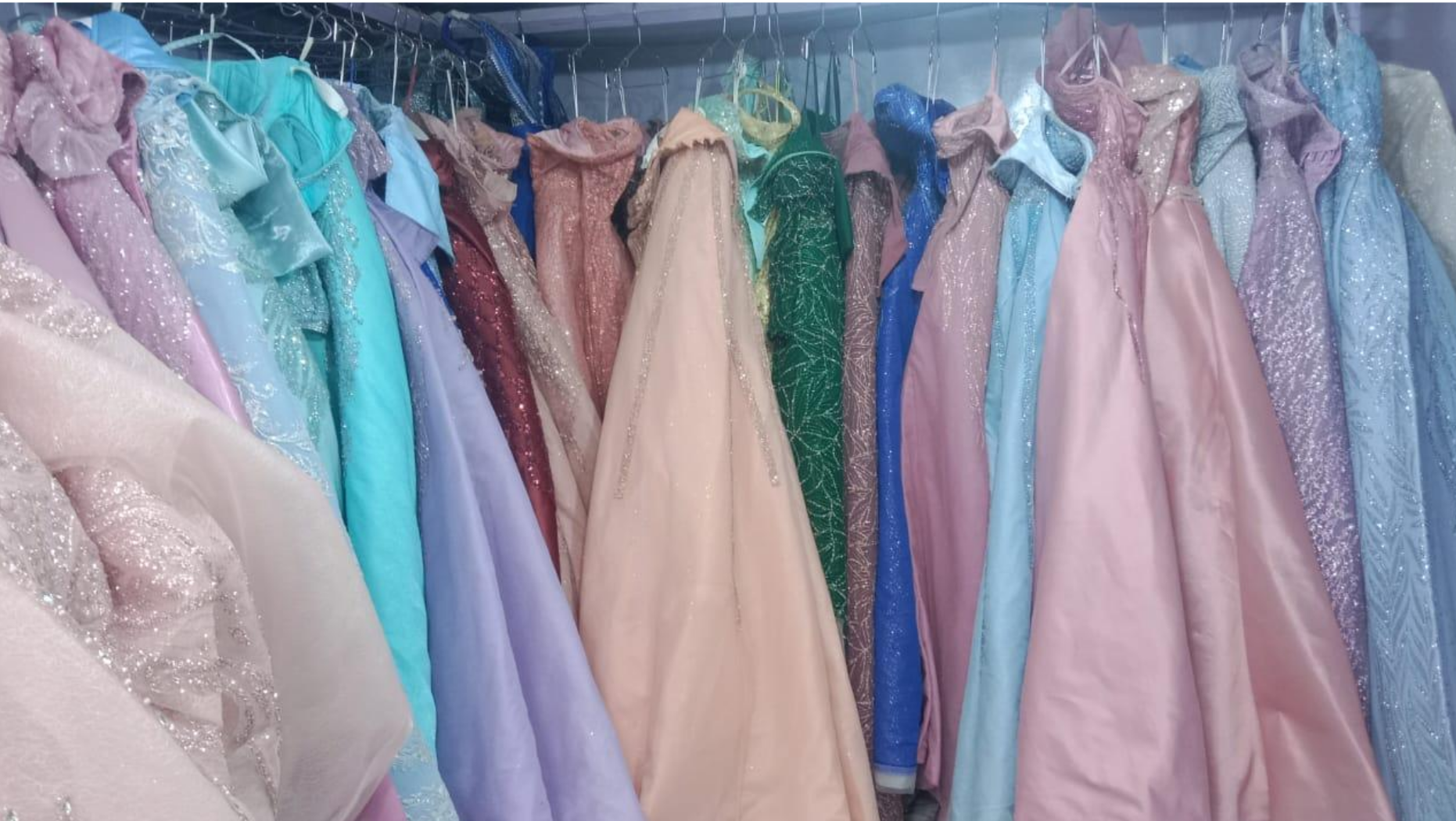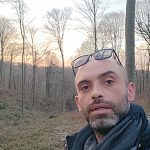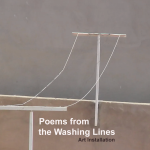With 30 years of hairdressing experience, opening a salon after being displaced to Zaatari camp in Jordan, was a natural step for Safaa al-Rashed. “When we arrived, I started giving free haircuts to little girls,” she told me. “Gradually, I developed my business by visiting Amman to buy one or two dresses. After working very hard for five years and with the support of others, my business grew into the bridal salon it is today.”
Safaa’s salon offers a range of services, including hairdressing, makeup, henna, and dress rentals. “I left school when I was 14 because I loved art. When my mother recognised my talent, she took me to a hair salon and asked if they could train me. I learned for four years, but then I began to face obstacles. Because I was a young girl, it wasn’t acceptable for me to work outside the home. So, I decided to open my own salon, and women would visit me to get their hair done.”
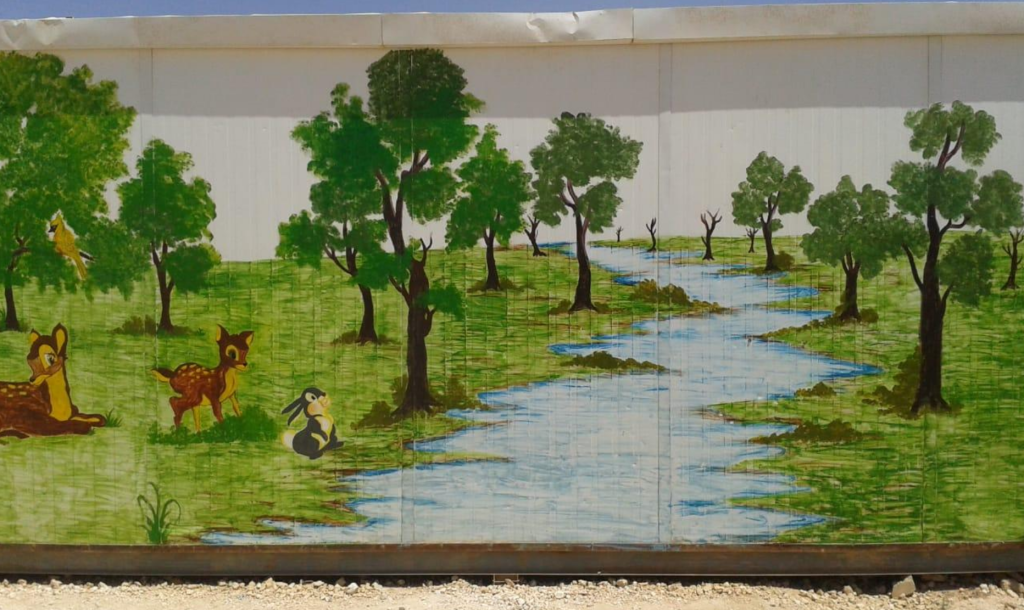
Since moving to Zaatari, Safaa faces very different challenges: “My job requires clean water and electricity – sometimes the electricity shuts down for hours. When this happens, I don’t have access to all the necessary equipment, so I have to make-do with my hands.”
Zaatari refugee camp in Jordan is the largest Syrian refugee camp in the world, home to an estimated 70,000 people. Established in 2012 to shelter displaced Syrians, primarily from Daraa governorate, the camp has become a quasi-permanent solution to the instability and violence of their homeland. “I travelled to the camp with my husband and daughters in 2012,” Safaa recalled, adding that her husband passed away seven years later. “I thought we would only be here for two months. When we first arrived in Zaatari, each family received one tent, regardless of how big or small their family was. After some time, we began living in caravans.”
For almost 13 years, Syrians in Zaatari have worked tirelessly to create a sense of normalcy. Safaa’s salon is one of these special spaces where camp residents can find relief and escape the hardships of displacement. “I try to create a joyous atmosphere – we play music while we style the bride’s hair, and at the same time, the girls can talk about their problems. The women and girls feel safe and comfortable in the salon.”
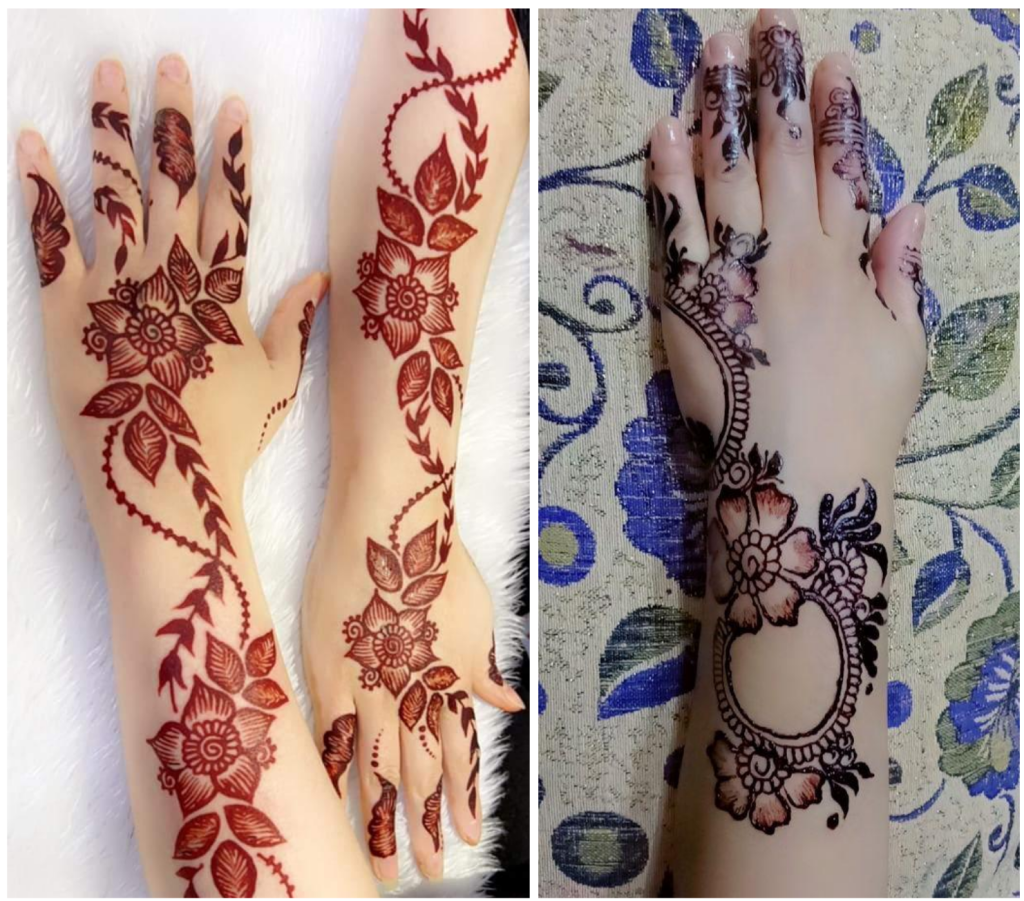
Summer weddings in Zaatari also play a vital role providing a sense of routine and tradition. “Most weddings happen on the weekend so everyone can attend. A lively party is arranged in the bride’s family home. The groom then arrives with his family. He takes the bride’s hands, places a bridal veil on her face called Tarha and brings her to another party at his home for his side of the family.”
The most memorable wedding Saffa prepared was for her daughter: “It took us one month to prepare for it,” she shared. “On the day, we made sure that she was relaxed. I helped her get ready, doing her hair and make-up from the early morning until 1pm.”
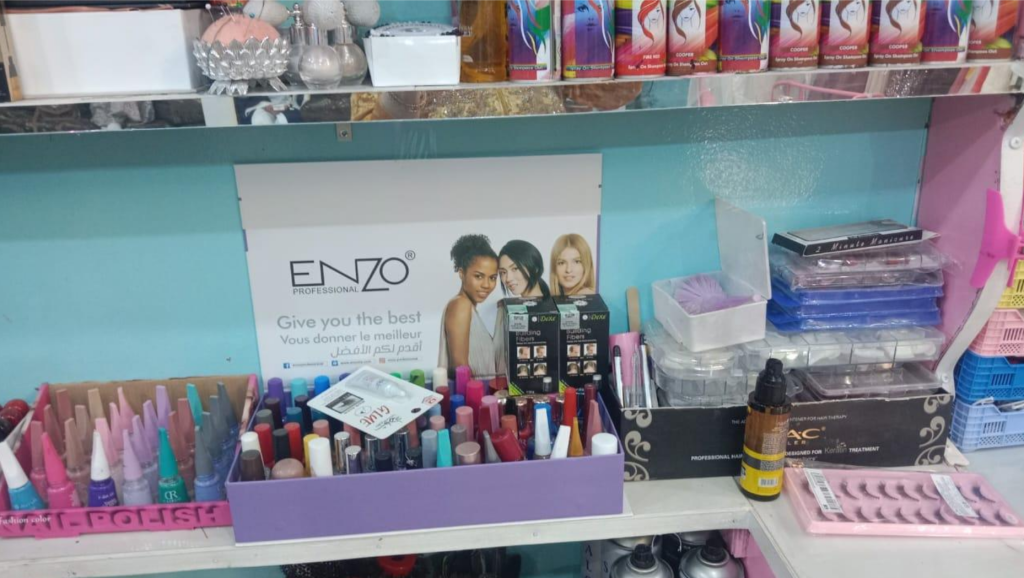
Planning a wedding is not easy in Zaatari. Many families lack the money and resources to host the celebrations they would have enjoyed back home.
The fall of the Assad regime on 8 December 2024 has restored hope for millions of displaced Syrians who now have an opportunity to return. However, Safaa remains hesitant. “Everybody wishes to return, including me. The camp is very different from my home in Syria – there’s no comparison. However, the destruction and difficult living situation prevents us from going back. Our family home was destroyed. If I return, I have to start from zero. Sometimes I feel like going back, and sometimes I don’t.”
Safaa notes that some of her culture’s wedding traditions have faded over time: “The older generation had many more traditions. One involved older women applying henna and placing a bracelet on the bride’s hand. They would then put a hand over the bride’s head while singing a sad song called Hajini.”
Hajini is a form of Bedouin folk singing, performed by two or more people in call-and-response style, typically sung while travelling by camel to evoke a sense of companionship. The word Hajini derives from the word ‘al-Hajin,’ referring to the purebred camel being sung about.
Women from older generations used to sing these songs to encourage young brides. However, Safaa observes that the song often makes attendees cry as they bid farewell to the bride while reminiscing about past days and sweet memories. “These kinds of songs started to disappear over time, as very few villages have maintained the tradition,” Safaa explained. “Nowadays, the music played at weddings is a lot more upbeat.”
Nesreen Yousfi
March 2025

